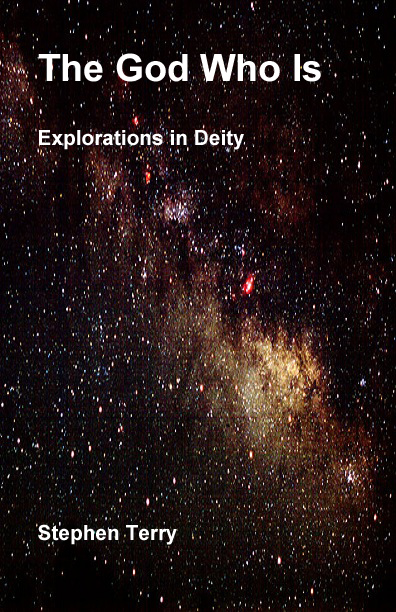The
Destruction of Jerusalem
Stephen
Terry
Commentary
for the December 5, 2015 Sabbath School Lesson
 “By the rivers of Babylon we sat and
wept when we remembered Zion. There on the poplars we hung our harps, for there
our captors asked us for songs, our tormentors demanded songs of joy; they
said, ‘Sing us one of the songs of Zion!’”
“By the rivers of Babylon we sat and
wept when we remembered Zion. There on the poplars we hung our harps, for there
our captors asked us for songs, our tormentors demanded songs of joy; they
said, ‘Sing us one of the songs of Zion!’”
“How
can we sing the songs of the Lord while in a foreign land? If I forget you,
Jerusalem, may my right hand forget its skill. May my tongue cling to the roof
of my mouth if I do not remember you, if I do not consider Jerusalem my highest
joy.” Psalm 137:1-6, NIV
Through the many thousands of years of known history,
mankind has struggled with the problem of how to adapt to having one’s culture,
one’s people, absorbed by a stronger, alien culture where even the speech may
be unintelligible. This happened with the many migrations that swept over the
steppes of Asia and the countries of Europe. It did not stop at the borders of
the great Atlantic Ocean, for ancient explorers and conquerors from Europe
swept aside or destroyed the native cultures of the Americas as well. Perhaps
many of those overwhelmed by these alien invaders have felt as the Jews did
after Jerusalem was destroyed and those Jews were force-marched into exile in
Babylon. Their lives destroyed and their future uncertain, they were completely
at the mercy of their captors.
When we read of the Holocaust and the traumas the Jews experienced
at the hands of the Nazis, we may be able to get some inkling of what things
may have been like for those in Jerusalem to be exposed to the hostilities of
the Babylonians who had been frustrated in their siege of Jerusalem for two
years. Two years away from their families and the dangers of disease and death
from the enemy may have soured any sympathy these rough warriors had for the rebellious
Jews. In a scene to be repeated in 70 CE and again in the Bar Kokhba Revolt of
the early 2nd century CE, they may have been sold into slavery if
they were lucky or executed if not. In any event, they were at the mercy of
captors who may have had little mercy left after the lengthy siege.
Throughout the siege, Jeremiah had been urging the
people to surrender to the Babylonians in order to save their lives, but those
who were in charge in Jerusalem saw this as weakening the hands of those
defending the city.[i]
As a result, he was taken to prison and placed into a muddy cistern, presumably
left to die. This would be all the more likely in the straightened
circumstances of a siege, when food would be scarce. Fortunately, Ebed-Melech,
a eunuch, sought permission from King Zedekiah to rescue him and that
permission was granted and he was allowed to be lifted from the cistern to
remain in the prison.[ii] When the Babylonians
finally conquered Jerusalem, they were kind to Jeremiah and offered him the
choice of going with them to Babylon or remaining in Jerusalem.[iii] As some fled Jerusalem
during the siege and surrendered to the Babylonians, they may have informed
their enemies of the counsel Jeremiah was giving. Perhaps this was behind their
favorable attitude toward him when they took the city.
To the Jews, Jeremiah’s counsel might have seemed
equivalent to a modern day prophet telling the United States during World War
II to surrender to Hitler because of their sins. When we look at it in a modern
context like that, it becomes easier to understand the hostility of the Jewish
leaders to Jeremiah. After all if we could imprison well over a hundred thousand
innocent Japanese during World War II[iv] in the interests of
national security, what would the punishment of one disloyal prophet be
compared to that? Perhaps we like to think that we would have respected
Jeremiah and honored him as a prophet sent by God, but our actions seem to say
otherwise. The witch hunt for Communists under the purview of Senator Eugene McCarthy[v] indicates we are not
exempt from persecuting innocents in the interest of national security. Even
today, we find our leaders refusing to help Muslim refugees fleeing terror for
fear that, like a contagious disease, terrorism will
somehow transplant itself to our society.[vi] This is equivalent to
saying if we allowed Germans fleeing Nazism into the United States prior to and
during World War II, we would be overcome by Nazis.
This of course did not happen, but perhaps because Syrians are enough different
from us, we feel certain that terrorism will infect us if we allow them in.
History though has not born this out.
All the Chinese who came into the United States during
the 19th century to build our railroads and perform other menial
labor did not turn our country into China. However, this did not prevent their abuse
by Americans who feared their difference. The Chinese Massacre of 1871 in Los Angeles
being one of many examples.[vii] Such fear of “pollution”
infecting the Anglo majority in the United States has not only victimized the
Chinese and the original American Indian inhabitants, but the Africans brought here
against their will and their descendants, as well as the many Hispanics who
either originally populated the Southwestern Unites States or more recently
came across our southern border. However, our xenophobia is not limited to
racially distinct immigrants. We have also mistreated the Irish and the
Catholics who have deigned to enter our precincts. As recently as the 1960s, John
Kennedy was challenged in his campaign for president based on his Catholicism. Perhaps
this harks back to a time in merry old England when Catholics and Protestants
took turns burning one another at the stake, depending on what was the religion
of the current reigning monarch. But that such a precedent could influence
attitudes several centuries later is unjustifiable. Sadly, such concerns were
even expressed more recently about Mitt Romney when he ran for office because of
his Mormonism. Perhaps some agree with these concerns because they do not want
government supporting one religion over another, but more often the concern seems
to be that the candidate should support one’s preferred religious bias and not
support others. Triumphalism,[viii] for instance, as
expressed in certain circles, would have Evangelical Protestantism the official
state religion informing government policy, both domestic and foreign. Of course
if one is neither Protestant nor Evangelical, this may be problematic.
The curious aspect of present discrimination is that in
the past, as a nation, we have accommodated the animism of those who have
immigrated from more primitive cultures, we have accommodated Buddhism,
Hinduism, Jainism, Taoism, Shintoism, and myriad other faith practices both
avowedly Christian and not. Yet, under the present expression of bias, we
somehow believe that those who are of the Muslim faith are unable to be a part
of the American dream. This is in spite of the fact that Muslims have been a
part of the American identity for several generations.
Perhaps this is because we tend to vilify an entire race
or religion based on the actions of a few extremists. We seem to do this, yet bridle
when someone from another nation, especially one we might deem “inferior,” does
it regarding the United States. Could it be that they only do this because they
have learned it from the example provided through the imperialistic relationship
we have had with their countries in the past? Perhaps missionaries who promoted
the wearing of white shirts and ties, and taught the correct “missionary
position” for intimacy did not help with these perceptions and helped to create
the sense of superiority that was inherent in Western Culture. Now it is being
modeled back to us, revealing how distasteful it must have been for those who
received it at our hands. This brings it around to an essential aspect of the
problem in Jeremiah’s time.
The Jews, although syncretistic in their religious
practice, nonetheless had an arrogant view of their place in the world. They
saw themselves as specially favored of God and therefore discriminated against
all others. In Jesus time, this meant even discriminating against the
Samaritans who were trying to worship God, but did not do it with the purity
that the Jews demanded. As a result, the Jews avoided contact with them, as
well as other races, in order to avoid contamination from that impurity. They
refused to eat with the Romans who occupied and governed much of their country.[ix] Perhaps this sense of
exclusivism contributed not only to the destruction of Jerusalem by Babylon,
but also to its later destruction by the Romans. Instead of being the light to
the world that God asked them to be, they shut their homes, their hearts, and
their borders to the outsiders as much as possible, even those who sought the
source of the precious blessings God had granted to the Jews. The resultant
hostility of those around them may have been the breeding ground for what the
Old Testament prophets called the judgments of God. Perhaps it is not too late
for us to realize that similar attitudes may have similar results, and what we
deemed to be keeping us somehow purer from the contamination of lesser races
and cultures may actually be storing up an apocalyptic retribution that even
our “superior” culture cannot deliver us from, God’s blessings notwithstanding.
